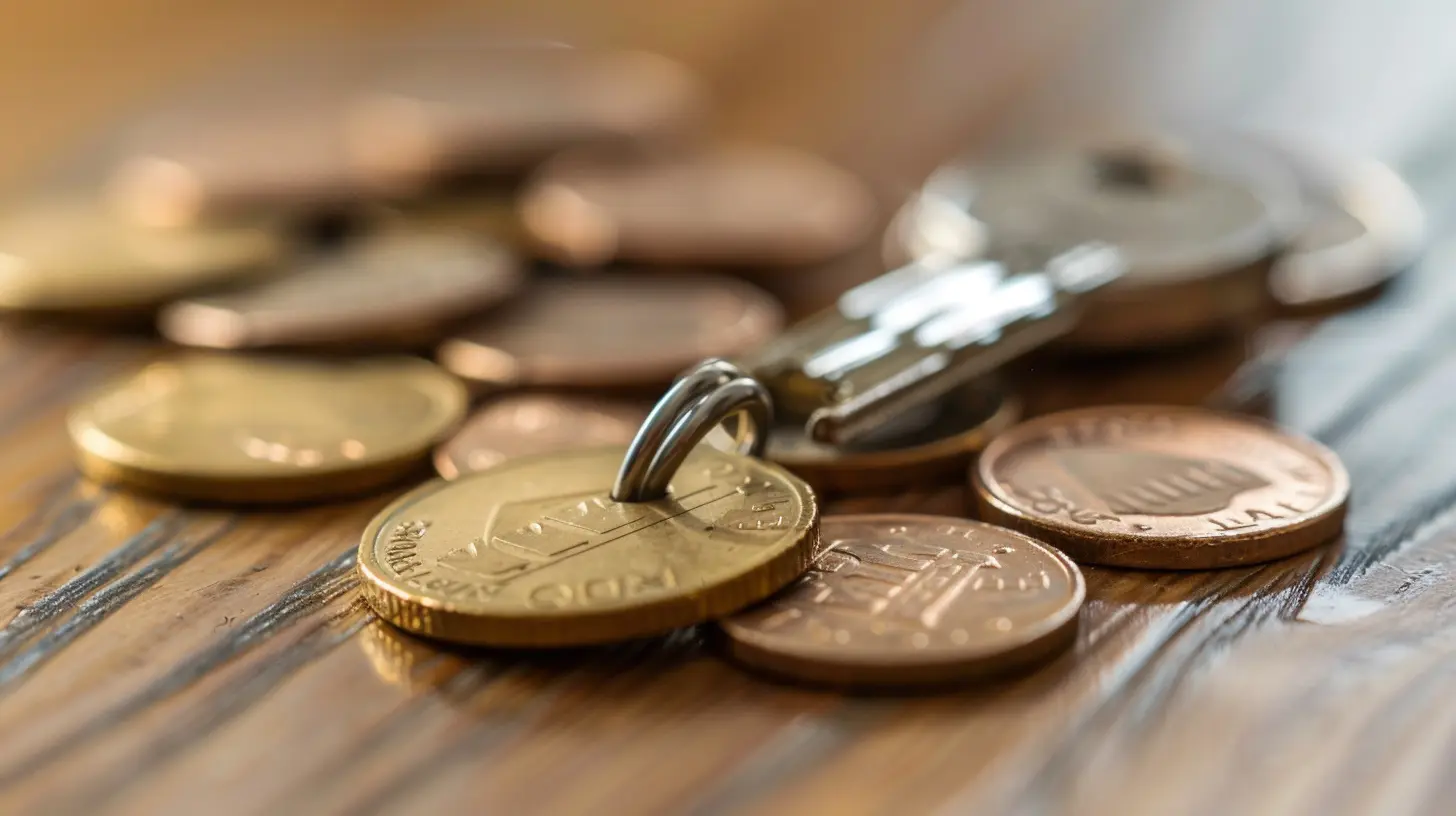Understanding Security Deposits: Do's and Don’ts
6 July 2025
Renting a home or apartment comes with a lot of responsibilities, and one of the biggest financial commitments is the security deposit. Whether you're a tenant trying to get your full deposit back or a landlord ensuring protection against potential damages, understanding the do's and don’ts of security deposits is crucial.
Many tenants lose money because they don’t fully understand the process, while landlords often face disputes due to unclear policies. So, how can both parties navigate this aspect of renting smoothly? Let's break it down.

What Is a Security Deposit?
A security deposit is a sum of money a tenant pays a landlord before moving in. This deposit serves as a financial safety net for landlords in case of unpaid rent, damages beyond normal wear and tear, or lease violations.The amount varies by location and landlord policies, but typically, it’s equal to one or two months' rent. The good news? If you stick to the rules and leave the property in good shape, you should get your full deposit back when you move out. 
Do’s of Security Deposits
When it comes to security deposits, both tenants and landlords need to follow best practices to ensure a smooth rental experience. Here’s what you should do:1. Read and Understand the Lease Agreement
Before handing over your deposit, carefully review the lease agreement. This document outlines your responsibilities and what could cause deductions from your deposit. If anything seems unclear, ask the landlord for clarification.2. Take Photos Before Moving In
As a tenant, documenting the condition of the rental unit before moving in is essential. Take clear, date-stamped photos of every room, focusing on existing damage like:- Scratched floors
- Stained carpets
- Damaged walls
- Broken appliances
This will serve as proof if your landlord tries to charge you for pre-existing issues when you move out.
3. Communicate Maintenance Issues Promptly
If something breaks or needs repair, notify your landlord immediately. Letting minor issues go unfixed can sometimes lead to bigger problems that might be taken out of your deposit.4. Follow Property Rules
Most leases include specific rules about maintenance, cleanliness, and noise levels. Following these rules reduces the risk of deductions from your deposit at the end of your tenancy.5. Give Proper Notice Before Moving Out
Most leases require tenants to provide written notice before moving out—typically 30 to 60 days in advance. Check your lease agreement and follow the required process. Failing to do so could result in losing part or all of your deposit.6. Clean the Property Before Leaving
One of the biggest reasons tenants lose their deposits? Leaving the place dirty. Before moving out:✅ Vacuum and mop floors
✅ Clean kitchen appliances and cabinets
✅ Scrub toilets, sinks, and bathtubs
✅ Patch up any minor wall damage
Leaving the rental in top-notch condition increases your chances of receiving a full refund.
7. Request a Walk-Through Inspection
A walk-through inspection with your landlord before moving out can help address any concerns. If your landlord points out issues, you may have the opportunity to fix them before deductions are made.
Don’ts of Security Deposits
Now that we've covered the do's, let's talk about what not to do to avoid unnecessary deductions.1. Don’t Assume You’ll Automatically Get Your Deposit Back
Just because you paid a security deposit doesn’t mean you’ll get it back in full. Your landlord can legally deduct from it for several reasons, including unpaid rent or damages. That’s why it’s crucial to leave the place in good condition.2. Don’t Ignore Lease Terms
If your lease specifies that you need to replace air filters, maintain the lawn, or repaint walls before moving out, don’t ignore those requirements. Failing to meet these obligations may lead to deductions.3. Don’t Break the Lease Early Without Understanding the Consequences
Leaving before your lease ends can cost you part (or all) of your deposit unless you’ve made arrangements with your landlord. Some landlords will allow early termination if you find a replacement tenant, but always get this in writing to protect yourself.4. Don’t Make Unauthorized Alterations
Thinking about painting the walls your favorite color or putting up shelves? Stop right there. Making changes without getting your landlord’s permission can lead to deductions from your deposit for repainting or repairs.5. Don’t Leave Personal Belongings Behind
Leaving furniture, trash, or personal items in the rental can result in a cleaning or disposal fee. Always clear out everything before moving to avoid unnecessary charges.6. Don’t Skip the Final Inspection
If your landlord offers a final inspection, take advantage of it. This allows you to fix any issues before the landlord deducts money from your deposit.7. Don’t Forget to Provide a Forwarding Address
If your landlord doesn’t know where to send your deposit refund, they might hold onto it longer than necessary. Always provide a forwarding address before moving out to ensure you receive any remaining funds.
How Long Does a Landlord Have to Return a Security Deposit?
The amount of time a landlord has to return your deposit depends on state laws, but it’s usually between 14 to 30 days after you move out.If there are deductions, the landlord must provide an itemized list explaining why money was withheld. If you disagree with the deductions, you have the legal right to dispute them.
What to Do If You Don’t Get Your Deposit Back
If your landlord refuses to return your security deposit unfairly, here’s what you can do:1. Review Your Lease & State Laws – Ensure you followed all requirements for a deposit refund.
2. Write a Formal Request – Send a written demand asking for your deposit back.
3. Provide Documentation – Share move-in/move-out photos, receipts of repairs, and any written agreements.
4. Consider Legal Action – If your landlord still refuses to refund your deposit, you may take legal action by filing a small claims court case.
Many states impose penalties on landlords who unlawfully withhold security deposits, so knowing your rights is key.
Final Thoughts
Security deposits don’t have to be a headache. Whether you're a tenant or landlord, following the right steps can ensure a fair and stress-free experience.For tenants: take care of the rental, document everything, and follow lease terms. For landlords: be transparent about deposit deductions and return funds promptly. By following these do’s and don’ts, you can avoid unnecessary disputes and make the rental process smoother for everyone.
all images in this post were generated using AI tools
Category:
Rental PropertiesAuthor:

Kingston Estes
Discussion
rate this article
1 comments
Mara McFarlane
Great article! Understanding security deposits is essential for both renters and landlords. These valuable tips will help everyone navigate the process with confidence and clarity!
July 21, 2025 at 3:55 AM

Kingston Estes
Thank you for your feedback! I'm glad you found the tips helpful for both renters and landlords.


